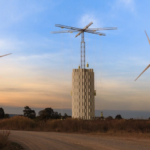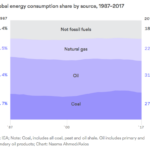This week’s story by Joe Gose in the NYT provides an excellent overview of Commercial Property Assessed Clean Energy (C-PACE) programs, bringing this “little-known” way to secure low-cost capital into view for a wider audience. The piece describes the features that make C-PACE financing so attractive for clean and energy-efficient development. A conventional loan is…
Link Roundup: What We’re Reading in Energy News
Inside Climate News: What Does ’12 Years to Act on Climate Change’ (Now 11 Years) Really Mean? “The science on the 2030 date is clear, said Michael Mann, a climate scientist at Pennsylvania State University. The controversy stems from people mischaracterizing the carbon reduction timeline as a threshold for climate disaster.” Axios: Poll: The state of…
With long-term energy storage becoming more important to the grid, new technologies compete for investment.
Recent weeks have included a drumbeat of news about long-term energy storage, as start-up companies seek funding for very different approaches. A few examples via Greentech Media: Closed-loop pumped hydro storage. Two artificial reservoirs, one higher and one lower, that can pump water to the higher reservoir to store energy and drain into the lower…
“Boring” chart sends urgent message about increasing clean investment
In today’s column, Amy Harder at Axios highlights “the most important boring chart out there.” Here it is: The chart is “boring” in that it’s almost completely static, showing little change in the global energy mix over the course of three decades. And it’s important in that it shows the magnitude of the challenge ahead…
Moody’s downgrades coal outlook, but more is needed to forestall climate change
On Wednesday, major ratings firm Moody’s Investors Service downgraded its assessment of the North American coal sector to a “negative” outlook. This has been rightly cited as a positive sign for the climate, in that it’s an indication of coal’s decline. But it also highlights the ways in which this type of market trend will…
Blog: New research underscores economic threats of climate change
What would our reaction have been during the great recession if the U.S. government did nothing to fix the economy, and even denied the financial collapse existed? Denial of an economic threat on a similar scale is happening today, with respect to the climate crisis. A new study from the National Bureau of Economic Research…

